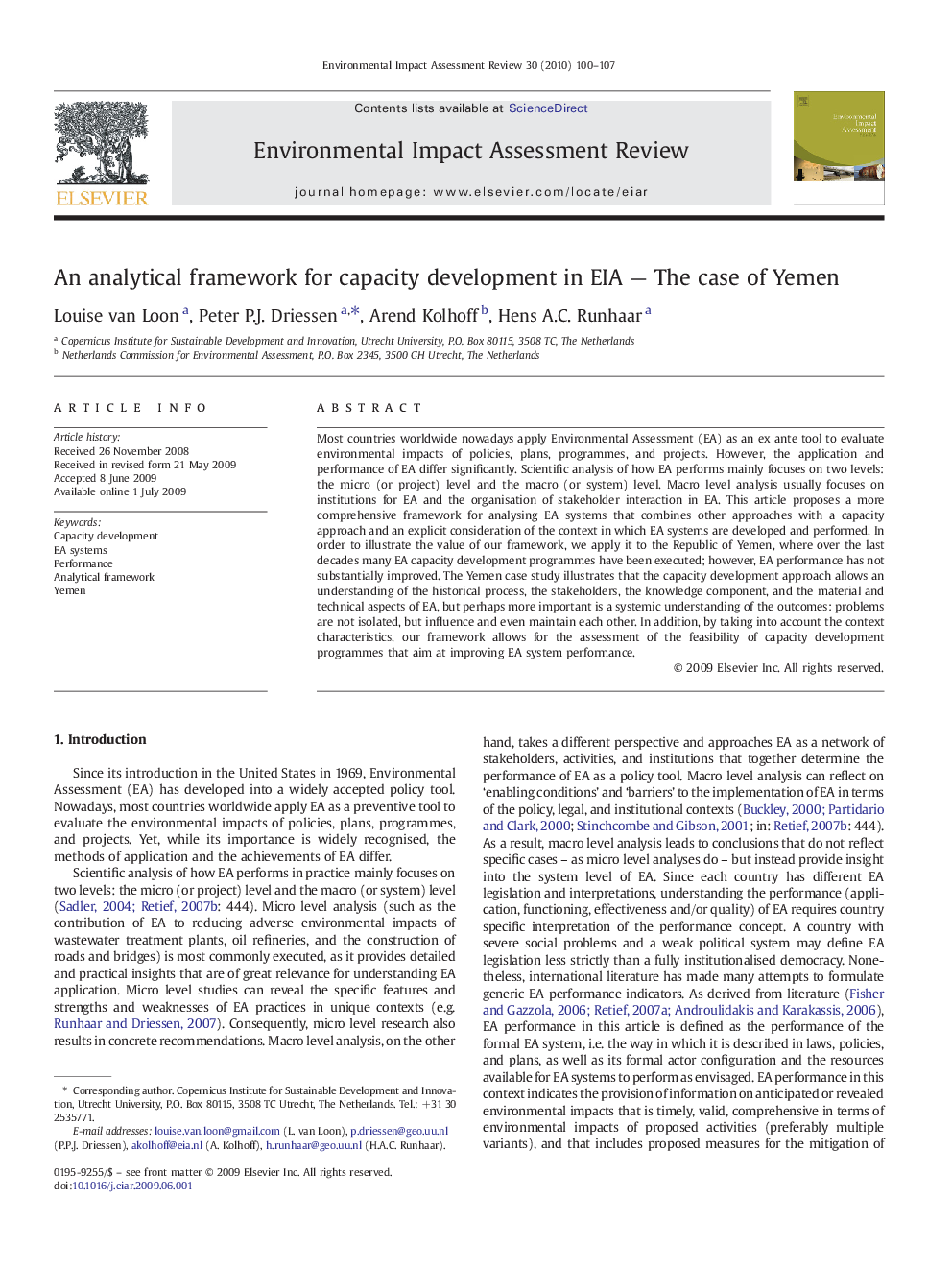| کد مقاله | کد نشریه | سال انتشار | مقاله انگلیسی | نسخه تمام متن |
|---|---|---|---|---|
| 1053147 | 946528 | 2010 | 8 صفحه PDF | دانلود رایگان |

Most countries worldwide nowadays apply Environmental Assessment (EA) as an ex ante tool to evaluate environmental impacts of policies, plans, programmes, and projects. However, the application and performance of EA differ significantly. Scientific analysis of how EA performs mainly focuses on two levels: the micro (or project) level and the macro (or system) level. Macro level analysis usually focuses on institutions for EA and the organisation of stakeholder interaction in EA. This article proposes a more comprehensive framework for analysing EA systems that combines other approaches with a capacity approach and an explicit consideration of the context in which EA systems are developed and performed. In order to illustrate the value of our framework, we apply it to the Republic of Yemen, where over the last decades many EA capacity development programmes have been executed; however, EA performance has not substantially improved. The Yemen case study illustrates that the capacity development approach allows an understanding of the historical process, the stakeholders, the knowledge component, and the material and technical aspects of EA, but perhaps more important is a systemic understanding of the outcomes: problems are not isolated, but influence and even maintain each other. In addition, by taking into account the context characteristics, our framework allows for the assessment of the feasibility of capacity development programmes that aim at improving EA system performance.
Journal: Environmental Impact Assessment Review - Volume 30, Issue 2, February 2010, Pages 100–107